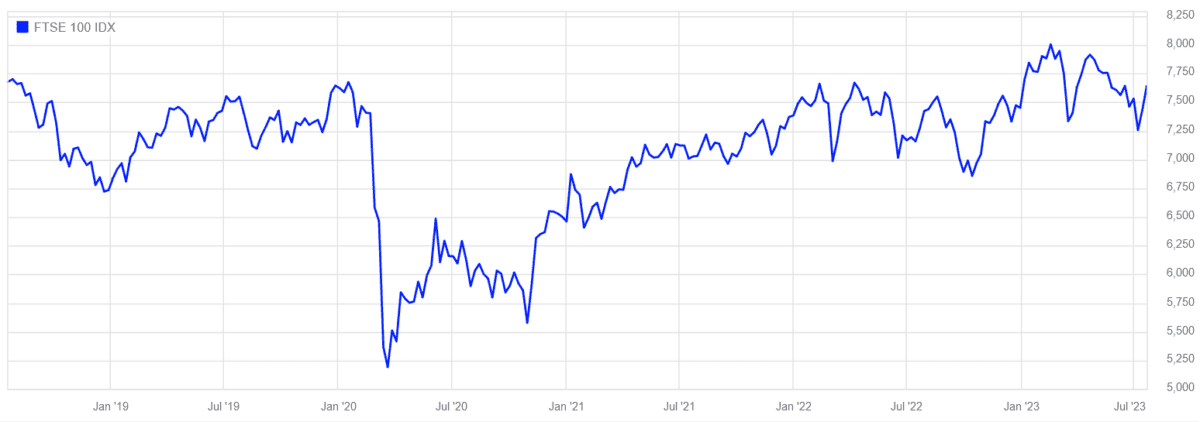Like most UK share investors, I’ve decided to pack my stocks portfolio with a wide array of FTSE 100 shares. But in recent years I’ve been disappointed in the returns the index has provided.
But weak investor confidence means the FTSE 100 has failed to match the brilliant ascents of major US and European indices. In fact, at 7,635 points, the UK’s premier share index is basically unchanged from the 7,678 points of five years ago.
However, major economic data in recent days suggests we could be on the cusp of a new bull market.
Passive income stocks: our picks
Do you like the idea of dividend income?
The prospect of investing in a company just once, then sitting back and watching as it potentially pays a dividend out over and over?
If you’re excited by the thought of regular passive income payments, as well as the potential for significant growth on your initial investment…
Then we think you’ll want to see this report inside Motley Fool Share Advisor — ‘5 Essential Stocks For Passive Income Seekers’.
What’s more, today we’re giving away one of these stock picks, absolutely free!
Steady as she goes

As I say, the performance of the FTSE index has underwhelmed compared to its foreign counterparts. The S&P 500, for example, has risen by almost two-thirds over the past five years.
However, the UK lead index hasn’t exactly been in the doldrums. As the chart above shows, it has been on a broad uptrend since the depths of the pandemic in 2020.
Higher UK inflation compared with the US and Europe — and its impact on interest rates — has caused the London Stock Market to underperform other major Western indices.
Furthermore, the S&P has been lifted by the stunning performance of many tech stocks such as Amazon, Microsoft and, recently, Nvidia. The FTSE’s high concentration of ‘old economy’ stocks like banks, miners and household goods manufacturers has done it no favours here.
Handbrake off?
However, last week’s forecast-beating inflation report could prove a pivotal moment in the FTSE 100’s performance.
June’s consumer price inflation (CPI) figure of 7.9% is the first better-than-expected reading for a long time. And it immediately prompted a downgrade in the City’s interest rate predictions. Rates are now tipped to peak at around 5.5% to 5.75%, down from previous estimates well north of 6%.
Lower interest rates boost the FTSE 100 in two ways. They provide more scope for the British economy to grow. They also reduce the strength of the pound — important for the earnings of blue-chip firms that report in foreign currencies. The FTSE is of course packed with such businesses.
Here’s what I’m doing now
Investor appetite for FTSE 100 shares has already soared in the wake of the report. But it’s too early to say the index is at the start of a new bull market.
A series of disappointing inflation reports could again pull share prices lower again, both in the UK and abroad. Patchy economic data from key economies like the US and China might also weigh on market confidence.
However, this doesn’t affect my own strategy for buying FTSE 100 stocks. I believe that, over the long term, share prices will soar from current levels. Though past performance is no guarantee of future success, I have the weight of history to back up my bullishness too.
Credit Suisse says that UK shares have provided an average annual cumulative return of 9.1% since 1900. This is roughly in line with the 9.5% return that US stocks have provided in that time.
The FTSE 100’s recent underperformance gives me a chance to buy many top stocks extremely cheaply too. And this could boost my chances of making stunning returns. So I plan to keep buying blue-chip UK shares with any spare cash I have.








